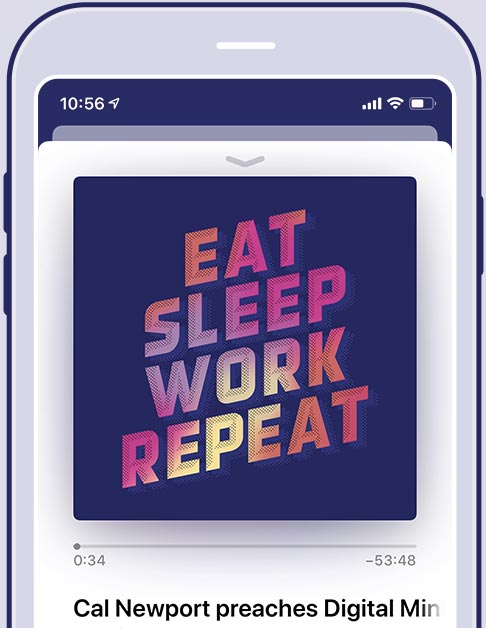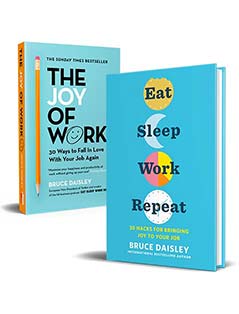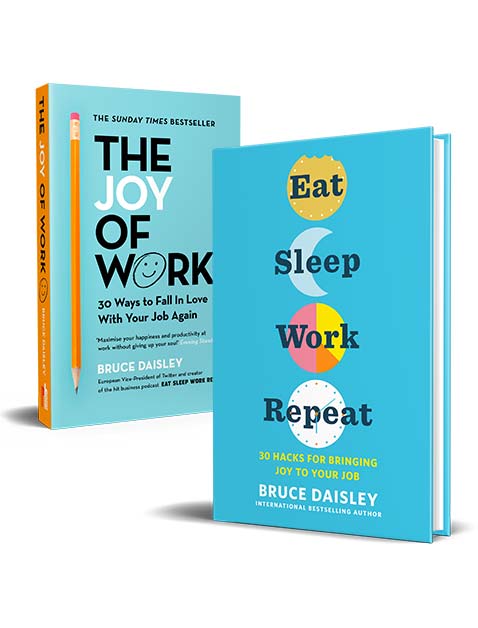Battling Bureaucracy (lessons from Gary Hamel)
I’ve been reading Gary Hamel‘s forthcoming new book, Humanocracy. He believes that the single most empowering (and profitable) thing that businesses can do is eliminate their creeping bureaucracy.
He talks about how increasingly organisations are paralysed with red tape and bureaucracy. The end result is that they can’t get anything done. There are some clear examples of this from the recent past. He characterises the Microsoft era under Bill Gates and Steve Ballmer as being one where opportunity after opportunity was passed because the organisation was so heavily bureaucratic. Satya Nadella has freed the organisation from a lot of this – with evident results.
Hamel proposes a series of questions that help you diagnose the extent of bureaucracy in your company.
Bureaucratic Mass Index questions
- How many layers are there in your organisation?
- What percentage of time do you spend on bureaucratic chores? (preparing reports, attending meetings, getting sign-off)
- How much does bureaucracy slow down your organisation?
- To what extent are interactions with your manager about internal issues? (eg getting resources, resolving disputes)
- How much autonomy do frontline teams have to design their work, solve problems, test ideas?
- How often are frontline teams involved in the design and development of change initiatives?
- How do people in your organisation react to unconventional ideas?
- In general how easy is it to launch a new project that requires a small team and bit of seed funding?
- How prevalent are political behaviours in your organisation?
- How often do political skills – as opposed to demonstrated competence – influence who gets on in your organisation?
Hamel conducted his own research into these questions for a piece in HBR. In it:
- respondents spent 27% of their time on bureaucratic tasks
- the average person works in an organisation with more than 6 management layers
- 2/3 of non managers report little or only moderate control over their work methods and priorities
- 75% of respondents say new ideas are met with indifference
- 95% say it is not easy or is very difficult for frontline employees to launch a new initiative
- 62% of respondents believe political skills determine who gets ahead
Hamel says that the bureaucratic class (this has the debatable definition of being managers/supervisors and admins) make up 18.4% of the US workforce and claim almost a third of the country’s wage bill.
He poses the question ‘how much bureaucracy could be eliminated without sacrificising organisational performance?’
Hamel and co-writer Michele Zanini discuss Nucor (who we’ve featured before). Nucor’s former CEO Ken Iverson had a very different philosophy of business:
“Most of today’s corporations were conceived as command-and-control organisations. The founders of integrated steel mills, for example, clearly assumed that the ‘genius’ of the organisation resided almost completely in management… In contrast, we built Nucor under the assumption that most of the ‘genius’ in our organisation would be found among the people doing the work. From the outset, we shaped our business to let employees show management the way to goals that once seemed unreachable”
Nucor plants make their own decisions on buying, products, staffing, sales and marketing. Each branch runs its own P&L with no corporate costs allocations. The mantra at Nucor is that decisions should be ‘pushed down to the lowest level’. Nucor’s admin costs (3%) are about half of those of the competition.
Teams base salary is lower but they have a massive opportunity to earn a collective bonus.
The Nucor hiring process looks for problem solvers. Typical questions include:
- what is something you are passionate about that helps motivate you at work?
- have you ever fixed something?
- describe learning a new skill – how did you go about it?
- tell us about a time when you made a mistake at work. How did you correct it?
- if a coworker really can’t stand you, what would you do?
So what is Hamel’s solution. He says organisations should channel the power of start-ups. Teams are small, roles are loosely defined, there’s little pressure for conformance, risks are prized, formality is low. In surveys of the characteristics of work empowerment led to much greater engagement. He says that internal teams need to be exposed to more customers – or more competition. This was resonant of Satya Nadella’s idea that he wanted every single employee at Microsoft to meet customers.
NEXT WEEK: I talk to Gary Hamel on Eat Sleep Work Repeat – subscribe now.







